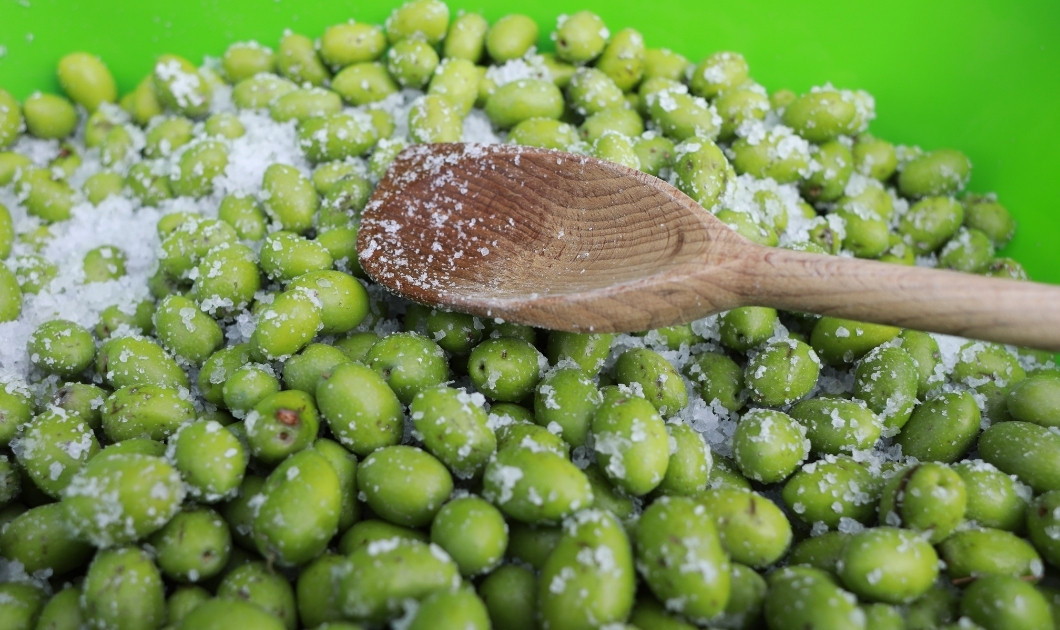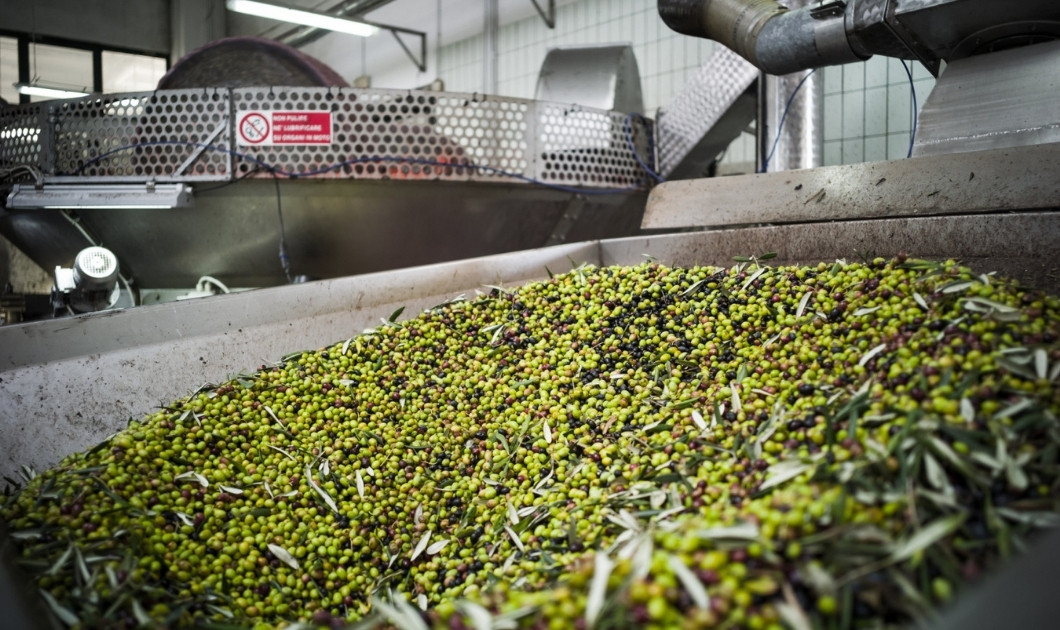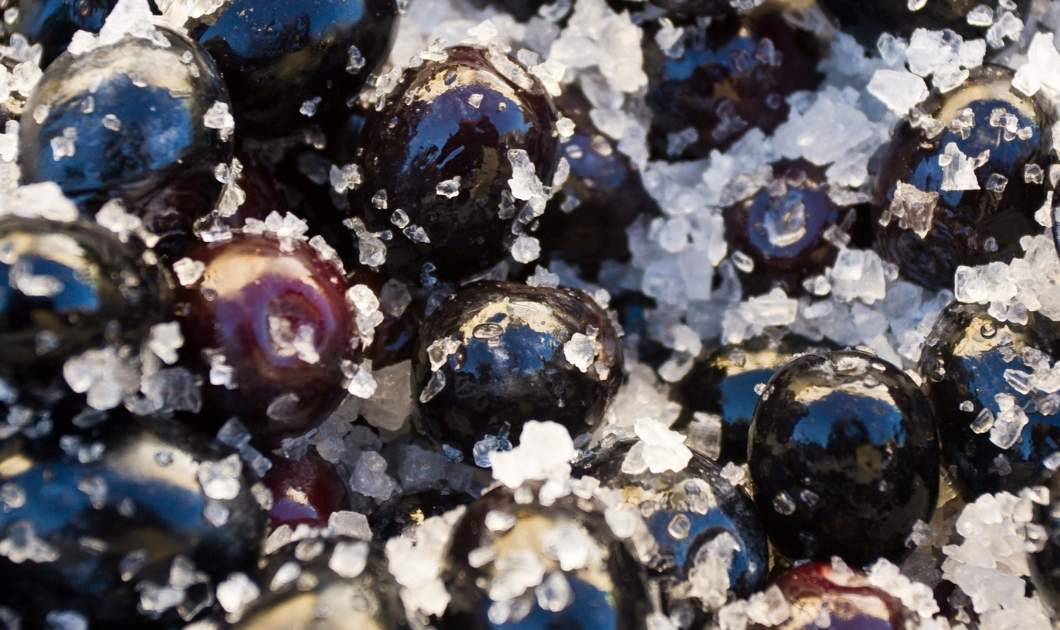Salt is a fundamental and multifunctional ingredient in the table olive industry. From removing natural bitterness to preserving, stabilizing texture, and enhancing flavor and color, salt plays a technological and gastronomic role and has a decisive impact on the commercial value of the final product. In modern production lines, choosing the right type and quality of salt is not just a technical choice, but a strategic decision for the success of a quality product.
Salt in olive processing - Technological role
The use of brine (a solution of water and salt) with concentrations of 8 - 10% NaCl is the most widely used technology for processing table olives, especially for green (Chalkidiki) and black (Kalamata, Throumbes) varieties. The high salt concentration reduces water activity, inhibits the growth of pathogenic microorganisms, and promotes controlled fermentation by lactic acid bacteria, which are responsible for the characteristic flavor and safety of the product.
In other cases, such as dry salt curing, the olives are covered with coarse sea salt, dehydrated naturally, and ripened without liquid. This method is ideal for traditional varieties and forms the basis for cured olives, which acquire a soft texture, intense and concentrated flavor, as well as natural preservation without the addition of additives or brine. This method is ideal for traditional varieties and gourmet products.

Flavor enhancement and product differentiation
Salt is not limited to a technical role, but also acts as an essential flavor enhancer. It boosts the natural aromas of the fruit, balances bitterness and acidity, and brings out sweet notes. In products with aromatic herbs or spices, the right amount of salt is essential for balance and consistency in the flavor profile.
Contemporary consumption trends, such as low-sodium options or gourmet olives with smoked salt or salt flakes, reinforce the importance of salt as a factor of differentiation and innovation. However, in low-sodium options, it is important to maintain safety and quality with reduced salt or the use of other mixtures, something that poses a technological challenge.
Different types of salt for different applications
The olive industry requires specialized types of salt, depending on the stage of production and the form of the product. The grain size of the salt affects the solubility, homogeneity, and overall behavior of the product during packaging and transport.
Dadakarides Salt S.A. offers a variety of salt types that fully meet these needs, such as natural unprocessed and processed coarse and semi-coarse salt. These grain sizes are up to 10 mm and are recommended because they dissolve slowly in water and keep the salt content of the brine consistent.
Raw salt 0–10 mm: Natural, pure, raw salt with a variety of grain sizes that allows for customized dissolution speed, facilitating processes that require flexibility in salinity and a lower level of processing.
Semi-coarse 1,4 - 2,5 mm: Suitable both for the preparation of brine solutions and for addition at the final stage of packaging, contributing to the flavour balance and uniformity of the product.
Coarse sea salt > 2,5 mm: Suitable for dry salt curing applications, such as in the production of traditional olive curing, where gradual dehydration and natural ripening of the fruit is required. The larger grain size offers stable, controlled penetration into the fruit and gentle dehydration without immediate dissolution. It contributes to natural ripening, texture retention and the development of a dense, intense flavour.

Salt and product quality
The use of salt substantially contributes to the long-term preservation of olives, as it limits the moisture content and inhibits the growth of microorganisms responsible for product spoilage. In addition, it protects against the oxidation of the natural fatty acids contained in the olive fruit, a phenomenon that can otherwise negatively affect the taste, aroma, and shelf life of the product. At the same time, salt helps to stabilize the texture and preserve the external appearance of the fruit during storage and transport.
In the export market, the use of natural, high-quality sea salt reinforces the image of authenticity and Mediterranean tradition, factors that are positively evaluated by consumers abroad.
Salt is the foundation of the table olive industry. From its technological value in brine and preservation to its role as a flavor-enhancing tool, its importance is undeniable. Choosing the right type of salt, combined with the necessary expertise, leads to safe, tasty, and competitive products.
Dadakarides Salt S.A. is the ideal partner for olive processing companies seeking quality, stability, and adaptability to market needs. With a reliable distribution network, certified quality, and decades of expertise, we are right alongside you every step of the way.
For more information or to request a sample, please contact our team.

